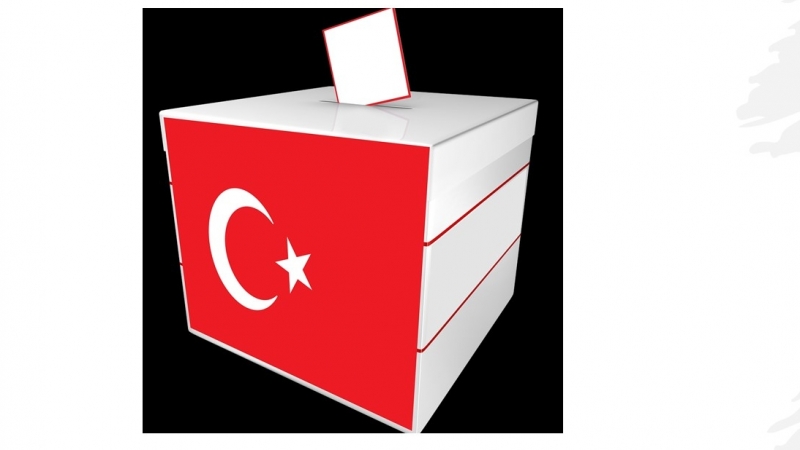What Promise Does Erdogan’s Victory Hold for Palestine?
Developing Just LeadershipIqbal Jassat
Dhu al-Qa'dah 11, 1444 2023-05-31
Daily News Analysis
by Iqbal Jassat
Recep Tayyip Erdogan has always been an enigma for Muslims the world over.
Endearing in the manner he relates to Islamic norms and values, but complex and controversial with regard to geopolitics in respect of NATO, Syria and Palestine.
Muslims familiar with Erdogan’s past will recall that in 1998, when he was the Mayor of Istanbul, he was sentenced to 10 months in prison and banned from politics for reading the following lines from a poem:
“The mosques are our barracks,
the domes our helmets,
the minarets our bayonets,
and the believers our soldiers.”
Notwithstanding the punishment he endured, Erdogan whose ruling AK Party is rooted in what is understood as “political Islam”, has studiously over time, overturned decades-old restrictions imposed on Islam by Mustafa Kemal, the secular general who abolished the Khilafah.
Kemal was a Freemason and harboured extreme hatred for Islam.
His anti-Islamic secular legacy continues to bedevil Turkish politics under the label of Kemalism.
A remarkable attainment indeed by Erdogan to then place Islam at the centre-stage of Turkiye’s social, cultural and political life, given Kemalism’s ubiquitous influence and the iron-clad grip held by the military.
Not surprising, therefore, that Greek media outlets harbour resentment and blatant hatred against Erdogan’s efforts.
It goes back a long way.
For instance, the Greek newspaper, Dimokratia News ran a vulgar headline against Erdogan in September 2020.
The Greek foreign ministry issued a tepid statement saying, “The use of offensive language is contrary to our country’s political culture and can only be condemned.”
But in the next sentence, it sought refuge behind the “freedom of expression” excuse, according to the Turkish English newspaper, the Daily Sabah.
The Turkish president’s lawyers lodged a law suit against the paper.
That has not dissuaded Greek newspapers from continuing their attacks on Erdogan or Islam.
They allege that since “Islamic thought is still rooted in the minds of Muslims,” for the Greeks, this “in itself is a danger to western countries as a whole.”
They lament the fact that while the west held “absolute control” over rulers of Muslim countries for decades, Erdogan has emerged as “an Islamic force outside the flock of control...”
Notwithstanding these Islamophobic attacks by the Greek media, the question that Muslims will be asking is whether Erdogan is able to delink from any external sphere of influence, if at all.
Turkiye straddles strategic geographical areas across East and West and pragmatism will dictate that to be disconnected economically and politically is not realistic.
But it does not imply that Erdogan will insulate Turkiye from the shift occurring in global reconfiguration which is evident in the unravelling of America’s unipolar status to a multipolar world pushed by Russia and China.
In any event, the most crucial change expected by Muslims in general and Palestinians in particular, relates to the continued dispossession, violent repression, bombings, massacres and illegal Occupation of Palestine.
The Judaization of Al Quds, the repeated incursions in Al Aqsa and the siege of Gaza, do not warrant Erdogan’s embrace of Israel, is an expectation Muslims across the world cherish.
Normalisation with Israel is viewed as a serious regression of the promise Erdogan held up when he stood up against Israeli “baby killers”.
To have adopted a complete reversal by re-establishing ties with the same colonial regime of killers, has been viewed as a betrayal.
The other contentious policy which has not gone down well with Muslim public opinion is Erdogan’s role in the destabilisation of Syria. Occupying strategic areas of Syria remains a stigma which will not be erased until he evacuates his military forces.
The challenges Erdogan faces, notwithstanding his current victory, are manifold.
Domestically, he is confronted with an economy and currency in free fall.
The opposition coalition may have suffered a bruising defeat but it doesn’t mean that a sizeable portion of Turkiye’s population who voted against him will disappear into thin air.
The Ukraine/Russia conflict and Turkiye’s membership of NATO will not allow Erdogan to keep walking the thin edge of the wedge.
So far he has been able to walk a tight rope without falling off but will this posture be sustainable is anyone’s guess.
While the world awaits Erdogan’s inauguration, Muslims worldwide will eagerly hope that he re-reads the poem which landed him in jail—with greater conviction and matched with action.
Iqbal Jassat is Executive Member at Media Review Network, Johannesburg, South Africa


